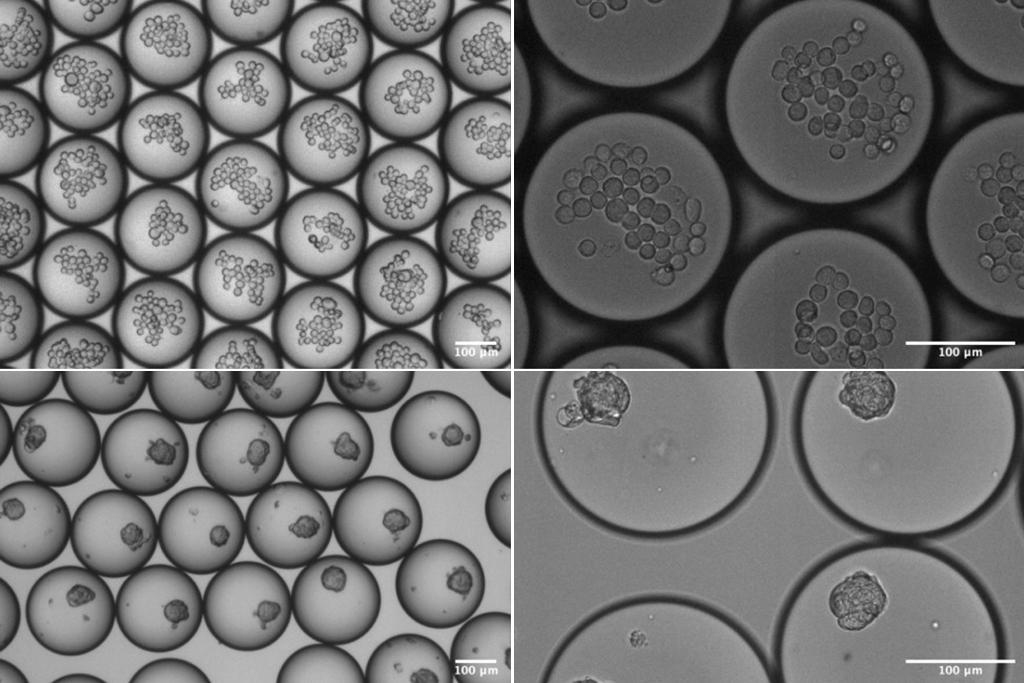Robotic production of 3D microtissue for screening and precision medicine
Scientists at SciLifeLab are using robots to produce thousands of 3D microtissues, also known as cell spheroids – in tiny droplets containing a fixed number of cells – to test drug candidates or personalized drug combinations in miniaturized versions of the targeted human tissue. Microtissue testing could also reduce the need for animal testing in the future.
In a recent study, published in SLAS Technology and led by Håkan Jönsson (SciLifeLab/KTH), researchers demonstrated the automation of microfluidics workflows using laboratory liquid handling robots.
The robots are able to create large numbers of standardized cell spheroids by utilizing pipettes interfacing with droplet-generating microfluidic devices. To date, the robotic platform has demonstrated microtissue production with 15 different cell lines reaching maximum production load of 85000 spheroids per microfluidic circuit per hour.
The team is now working within a Vinnova funded project on a next-generation robotic platform, scaling up the microfluidics robot to eight times higher production capabilities, to be able to fulfill the needs of personalized medicine and pharmaceutical drug screening. The technology was also recently highlighted at meetings at the Crick Institute, London and MicroTAS Basel.





